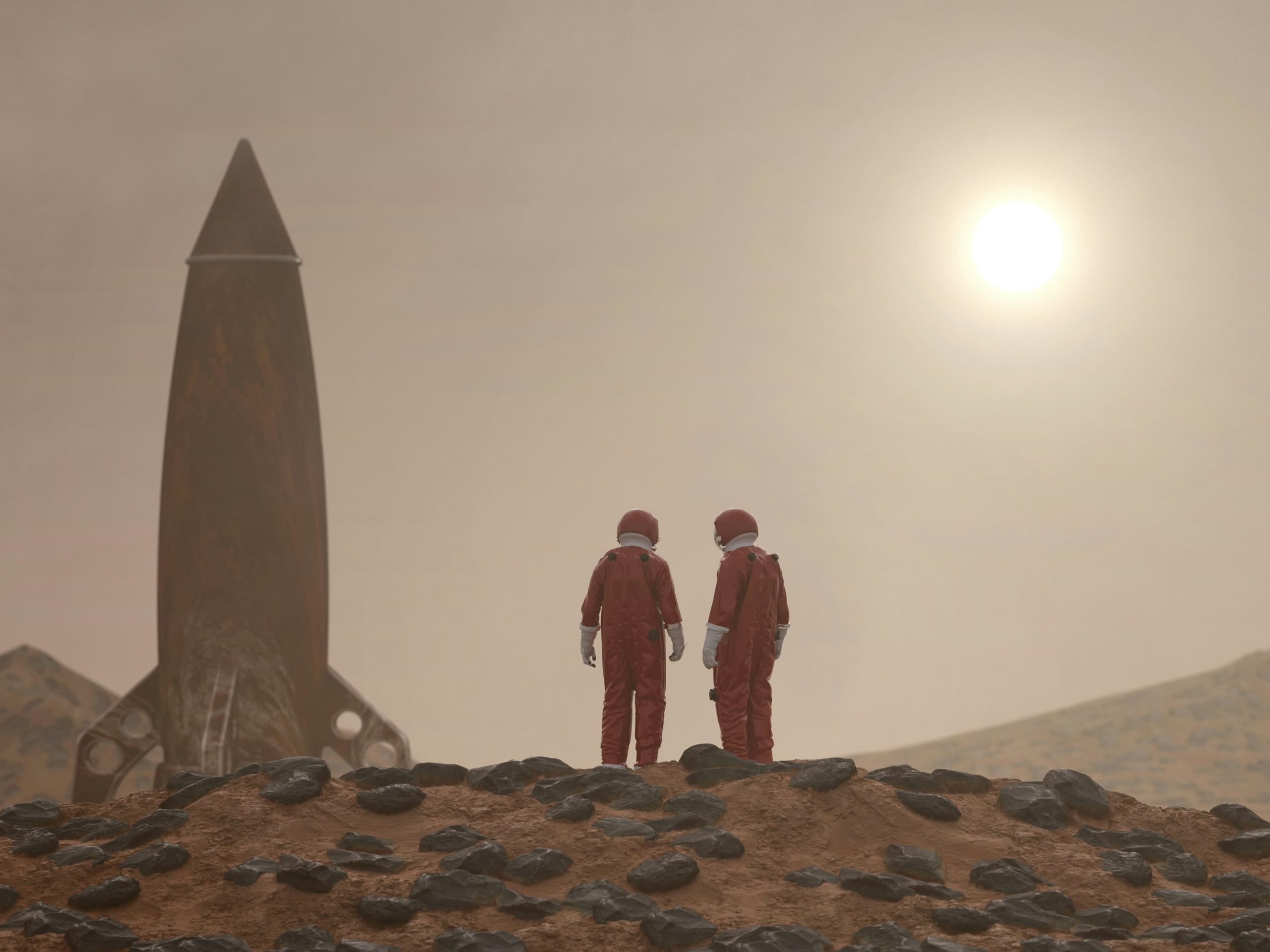Space Tourism: Is a Blast-Off Vacation Right for You?
If you’ve ever dreamed of venturing beyond the confines of Earth and exploring the infinite wonders of space, the concept of space tourism may have crossed your mind. But before you strap in and prepare for lift-off, there are crucial considerations to ponder. From the financial investment required to the physical and mental readiness demanded, the decision to embark on a space voyage is not one to be taken lightly. So, are you ready to take the leap and embrace the cosmos, or is the idea of a blast-off vacation a bit too far-fetched for your liking?
The Rise of Space Tourism
Space tourism has been steadily gaining popularity in recent years, with more and more people eager to experience the thrill of space travel. Imagine looking down at Earth from the vastness of space, feeling weightless as you float in zero gravity. Companies like SpaceX and Blue Origin are making this dream a reality for adventurous travelers like yourself. As technology advances and costs decrease, space tourism is becoming increasingly accessible to the average person.
You may be surprised to learn that space tourism isn’t just for astronauts. In fact, companies are designing spacecraft that are user-friendly and require minimal training. This means that you, yes you, could potentially take a trip to space in the near future. Imagine the bragging rights of being able to say you’ve been to space!
The rise of space tourism signifies a new era of exploration and adventure. Whether you’re a thrill-seeker or a space enthusiast, the opportunity to journey beyond our planet is an enticing prospect. So, are you ready to blast off on the vacation of a lifetime?
Cost Considerations for Space Travel
Considering the financial aspect of traveling beyond Earth’s atmosphere, it’s essential to understand the cost implications associated with space tourism. Space travel is an exclusive and expensive endeavor, with current prices ranging from hundreds of thousands to millions of dollars for a single trip.
The cost of space tourism is primarily driven by factors such as the spacecraft used, the duration of the journey, and the amenities provided during the experience. Companies like SpaceX, Blue Origin, and Virgin Galactic offer various packages that cater to different budgets and preferences, but even the most basic options come with a hefty price tag.
When budgeting for a space vacation, it’s crucial to account for not just the ticket price but also additional expenses like training, accommodation, and any unforeseen costs that may arise. Furthermore, travelers should be aware that prices are subject to change as the industry evolves and competition increases.
Before committing to a space trip, thoroughly research the costs involved and ensure that your budget aligns with your space travel aspirations.
Training and Preparation Needed
When embarking on a space tourism journey, adequate training and preparation are essential to ensure a safe and successful experience. Before your blast-off vacation, you’ll undergo rigorous training to familiarize yourself with the spacecraft and its operations. This training may include simulations, emergency drills, and instruction on how to move in microgravity. It’s crucial to pay close attention during these sessions to be prepared for any situation that may arise during your space journey.
In addition to technical training, physical preparation is also vital. You may be required to maintain a certain level of fitness to withstand the physical demands of space travel. Exercises to strengthen your core muscles and cardiovascular system are commonly included in pre-flight preparations.
Furthermore, mental preparedness is key for a space tourism adventure. Being in a confined space for an extended period, experiencing weightlessness, and seeing Earth from afar can be overwhelming. Learning coping strategies and relaxation techniques can help you manage any stress or anxiety during the trip.
Health and Safety Concerns
To ensure a safe and enjoyable space tourism experience, prioritizing health and safety concerns is paramount. Before embarking on a space vacation, it’s crucial to consider the potential risks involved. Space travel poses unique challenges to the human body, such as exposure to cosmic radiation and the effects of microgravity. These factors can impact your health, including radiation-induced illnesses and muscle atrophy. Therefore, thorough medical screenings and assessments are essential to ensure that you’re physically fit for the journey.
In addition to health considerations, safety protocols must be strictly adhered to during the space tourism experience. Spacecraft are complex machines that require meticulous maintenance and monitoring to function properly. Emergency procedures and contingency plans should be in place to address any unforeseen issues that may arise during the trip.
Prioritizing safety measures not only protects the well-being of passengers but also enhances the overall experience by instilling confidence in the journey’s reliability. By addressing health and safety concerns proactively, you can better enjoy the wonders of space exploration without unnecessary risks.
Types of Space Tourism Experiences
Differentiating between various types of space tourism experiences can help you choose the adventure that best suits your preferences and interests.
One option is suborbital space tourism, which offers a shorter journey to the edge of space, allowing you to experience weightlessness and see the curvature of the Earth before returning in a matter of hours.
If you’re looking for a more immersive experience, orbital space tourism provides a longer duration in space, giving you the opportunity to live and work aboard a space station like the International Space Station.
Deep space tourism is on the horizon, offering the chance to travel beyond Earth’s orbit and potentially visit destinations like the Moon or Mars.
Space hotels are also being developed, where you can stay in orbit and enjoy breathtaking views of space.
Each type of space tourism experience offers a unique perspective and level of adventure, catering to different preferences and levels of interest in space exploration.
Environmental Impact of Space Travel
Exploring the environmental impact of space travel is crucial in understanding the effects of human activities beyond Earth’s atmosphere. When considering space tourism, it’s essential to recognize that launching rockets releases significant amounts of carbon dioxide and other greenhouse gases into the atmosphere. These emissions contribute to climate change, affecting not only Earth but also potentially impacting celestial bodies visited during space travel.
Space tourism activities also produce space debris, such as defunct satellites and used rocket parts, which pose a risk of collision with operational satellites and spacecraft in orbit. This debris can remain in space for extended periods, creating hazards for future missions and contributing to the growing issue of space congestion.
Efforts are being made to mitigate these environmental impacts, with initiatives focusing on developing more sustainable rocket fuels, improving spacecraft design for reusability, and implementing guidelines for responsible space debris management.
As a prospective space tourist, being aware of these environmental considerations can help you make informed decisions and support the development of eco-friendly practices in the space tourism industry.
Accessibility and Inclusivity in Space Tourism
Enhancing the accessibility and inclusivity of space tourism experiences is a key focus for the industry’s growth and evolution. As space tourism becomes a reality, efforts are being made to ensure that these experiences are available to a diverse range of individuals. Companies are working on designing spacecraft that accommodate individuals with disabilities, making sure that space travel is accessible to all.
Additionally, initiatives are being developed to address the financial barriers that may prevent certain groups from participating in space tourism. By promoting inclusivity, the industry aims to create opportunities for everyone to partake in the wonder of space exploration.
Moreover, considerations are being made to ensure that space tourism experiences are culturally sensitive and respectful of different backgrounds. This includes providing information and support in multiple languages and incorporating diverse perspectives into the overall space tourism experience.
Future of Space Tourism Industry
With advancements in technology and increasing interest from the public, the space tourism industry is poised for rapid expansion in the coming years. Companies like SpaceX, Blue Origin, and Virgin Galactic are actively working on developing commercial spaceflight capabilities to cater to the growing demand for space travel experiences. These companies aren’t only focused on offering suborbital joyrides but are also aiming for orbital flights and even lunar missions in the near future.
The future of space tourism also holds the promise of increased affordability and accessibility. As technology advances and competition in the industry grows, the cost of space travel is expected to decrease, making it more accessible to a broader range of individuals. This could potentially open up a whole new realm of possibilities for adventure-seekers, researchers, and even those looking to experience the awe-inspiring views of Earth from space.
Personal Reflections on Space Travel
As the space tourism industry progresses, contemplating personal reflections on space travel allows individuals to envision the profound impact of venturing beyond Earth’s boundaries.
Imagine the exhilaration of floating in microgravity, gazing at Earth from afar, and experiencing the vastness of space firsthand. The thought of witnessing a sunrise every 45 minutes or marveling at the beauty of our planet from a completely different perspective can be both humbling and awe-inspiring.
Space travel offers a unique opportunity for self-reflection and personal growth. The challenges of space exploration can push you to your limits, testing your resilience, adaptability, and problem-solving skills in ways you never thought possible. Facing the unknown and embracing the uncertainties of space can be a transformative experience, fostering a deeper appreciation for life on Earth and our place in the universe.
Whether it’s the thrill of spaceflight, the desire for adventure, or the quest for knowledge, contemplating a journey beyond our atmosphere can evoke a sense of wonder and curiosity that ignites the human spirit.
Making Your Decision: To Space or Not to Space
When deciding whether to embark on a space tourism journey, consider the impact it may have on your perspective and sense of adventure. Space travel offers a unique opportunity to witness Earth from a completely different vantage point, experiencing the awe-inspiring beauty of our planet in a way that few have.
The thrill of blasting off into space, floating in zero gravity, and gazing upon the vastness of the universe can be a life-changing experience that expands your horizons and challenges your perceptions of the world.
On the other hand, space tourism comes with its own set of risks and considerations. Factors such as the physical demands of space travel, potential health effects, and the hefty price tag involved may make you hesitate. It’s important to weigh these factors against the allure of space exploration and determine if the adventure is truly worth it for you.
Ultimately, the decision to venture into space is a deeply personal one. Reflect on your sense of adventure, willingness to embrace the unknown, and the impact such a journey may have on your outlook on life.
Whether you choose to blast off or stay grounded, the decision should align with your values and aspirations.
Conclusion
So, is a blast-off vacation right for you? Consider the cost, preparation, safety, and accessibility factors before making your decision.
Whether you dream of floating in zero gravity or gazing at Earth from afar, space tourism offers a unique and unforgettable experience.
While the industry continues to evolve, only you can decide if the thrill of space travel is worth the journey.
So, are you ready to reach for the stars?





